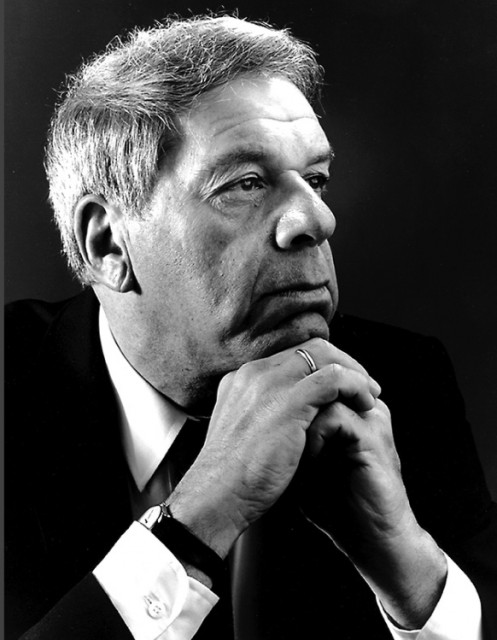We would like to thank Edwin Gordon for the text from his 2015 keynote address at the National Conference on Keyboard Pedagogy in Lombard, Illinois. To read the full text, sign up for our course, Foundational Piano Pedagogy. Between August 5 and September 15, The Frances Clark Center is offering 20% off all full-length courses such as Foundational Piano Pedagogy. Check out our other courses here and use this discount code to get 20% of your order: BLOG20B2S.

Dr. Edwin Gordon was one of the most distinguished and influential music educators of the twentieth century. His work on the measurement of music performance, audiation, and Music Learning Theory had far-reaching implications for a wide variety of musical settings. In November of 2015, Dr. Gordon was named a Lowell Mason Fellow by the National Association for Music Education.
Dr. Gordon was invited to be a keynote speaker at the National Conference on Keyboard Pedagogy in Lombard [July 2015]. While health concerns prevented him from attending in person, his keynote address (read by Scott Price) was a highlight of the conference. […] We reprint his NCKP address here in its entirety.
Good morning to all. I am delighted to be invited to participate in your conference. Although I am not an accomplished pianist, I have been interested in piano pedagogy for many years. As a result, I am lead to believe that piano is taught to many persons by teachers who typically teach the way they were taught, rather than according to an objective learning theory and current research. With no intent of being critical, I am anxious to share concepts I suspect are unfamiliar to many of you. It is my hope that you will be inspired to give serious consideration to your approach to teaching piano, and, perhaps, be encouraged to embrace some new concepts in your pedagogy.
Language acquisition
I will begin by talking briefly about language acquisition. There is a striking similarity between learning a language and learning music. Using language as an analogy should make it easier to grasp what I soon will be explaining about learning music, particularly piano instruction.
There are five language skill vocabularies. In sequential order of development they are listening, speaking, thinking, reading, and writing. Each provides readiness for learning the next. I must emphasize that listening comes first. It is fundamental. Without a firm listening vocabulary, the remaining four vocabularies can have only marginal development. Consider the following fact. Throughout history, humans have spoken more than 30,000 languages. Only 6,000 currently exist. The reason is that a language is no further from extinction than only one, just one, generation of adults not giving newborn and young children an opportunity to listen to that language. As an aside, only 200 of the 6,000 languages are written.
Without a rich listening vocabulary, development of a speaking vocabulary with proper pronunciation is restricted. I bring to your attention the unfortunate necessity of so many adolescents and adults to depend upon the words “like, you know, basically, I mean, whatever, awesome, and incredible.” These words represent the paucity of repetition in their narrow listening vocabulary. The chilling thought is that society is losing the wealth of our language heritage, and, due to similar neglect, our classical and Baroque music heritage is in jeopardy.
There are five parallel music skill vocabularies. In sequential order of development, they are 1) listening, 2) singing and chanting, 3) audiating and improvising, 4) reading, and 5) writing. As with language, listening is basic in piano instruction as well as all music instruction. Unfortunately, in typical instruction, listening is disregarded, often leading to detrimental results.
We hope you enjoyed this excerpt from Edwin Gordon’s keynote address at the National Conference on Keyboard Pedagogy in 2015. To read the entire text, sign up for our course, Foundational Piano Pedagogy.
MORE ON STUDIO MANAGEMENT
- COURSE: Foundational Piano Pedagogy (Self-Guided)
- MAGAZINE ARTICLE: Beyond the Keyboard by Edwin Gordon
- MAGAZINE ARTICLE: How do you teach reading in group lessons? by Craig Sale, Stephen Reen, Serena Mackey, and Tessa Sawchuck
- MAGAZINE ARTICLE: How Does Good Technique Relate to Ear Training? by Scott McBride Smith
- MAGAZINE ARTICLE: Brain Trust: Words of Wisdom From Early Childhood Experts by Susan Geffen
- MAGAZINE ARTICLE: What are the best practices? by Kathleen Thiesen
- MICROCOURSE: Developing Musical Skills in Young Pianists: Ideas from Music Learning Theory (from The Beginner Course)